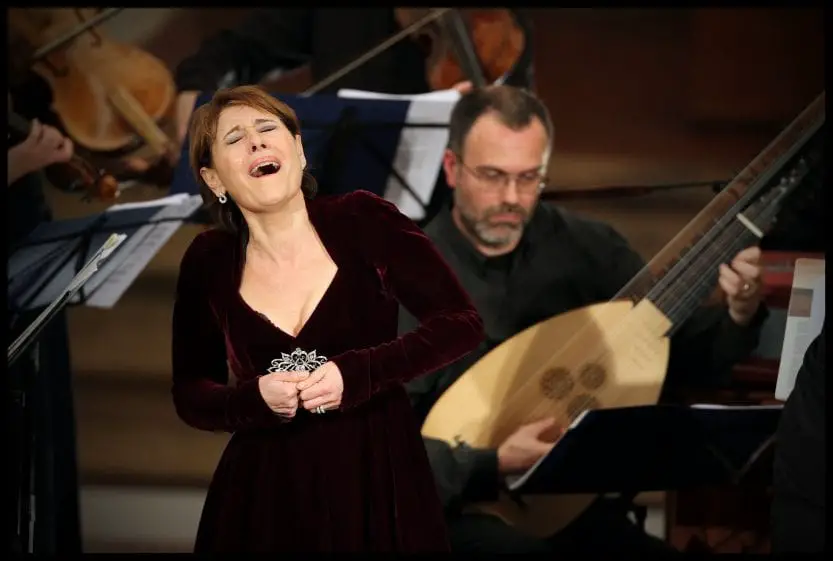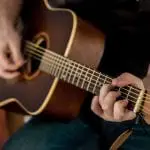Have you decided to walk away from Opera thinking it is very hard? Maybe you will change your mind with our beginner’s guide that lets you leap over that roadblock in an instant.
Go through these 5 important checkpoints to understand opera, immerse into it, and kick start your passion. Look at this guide from a fresh perspective to relate better and it will be much better if you keep the opera stereotypes aside too.
#1: What exactly is Opera?
An opera is a form of art where the story is conveyed primarily through music led by singers. Opera singers do not rely on any microphone to amplify their voice but instead channel their voices through the specially-designed theaters called Opera House. An opera consists of a large stage where the singer performs, a backstage for assisting in the story-telling, a lowered section in the front of the stage called ‘pit’ where the orchestra performs.
People often relate an opera with grand halls, big stages, luxurious seats, and beautiful sets. But what they do not miss are the high-pitched voices of opera singers amidst grandiose music. Now that is an impression many aspiring singers want to create when they start pursuing opera singing.
Opera translates to “work” in Italian. This art form originated in Italy during the 16th century and quickly traveled across Europe. Italy, Germany, and France stand as the important hotspots for the spread of this genre. The 19th century is often termed as the “Golden Age” for opera especially due to the works of Giuseppe Verdi in Italy and Richard Wagner in Germany.
#2: How to discover Opera?
An art form can always be admired better when you start seeing the best works of that art. So we recommend you start the journey into opera by hearing to some famous artists and their critically-acclaimed works. We suggest you to start following the works of these famous composers and then move on to the below mentioned great opera singers. That way, you can get a bird’s eye view of what goes into an opera. Usually, these will stand as a crucial guide for your success in learning opera singing.
5 Composers:
- Giuseppe Verdi
- Ludwig van Beethoven
- Wolfgang Amadeus Mozart
- Richard Wagner
- Gioachino Rossini
5 Singers:
- Maria Callas
- Luciano Pavarotti
- Joan Sutherland
- Andrea Bocelli
- Jessye Norman
Immersing yourself in these operas will let you learn to an extent without even singing. We learn a lot by observing when we are starting to learn a skill and this fundamental technique can help you to kick-start your passion for opera singing. Admire the art, relate to it, and blend with it.
We also recommend you to try to sing while hearing the audio to get in tune with the feel of the opera. Understanding the music and the singer’s reaction to that will train you how singers blend in and stand out at the same time.
#3: What are the different voice types in an Opera?
Operatic vocal techniques are developed to ensure that the voices of singers are loud enough to be heard without compromising the volume of the orchestra or instruments. Not using any amplification medium makes the voice the core of an opera and the singer often the lead. An opera singer touches multiple notes in a single performance and each singer thoroughly trains on their voice range.
There are multiple types of opera voices. But the most common (listed below) are categorized based on their voice range (pitch). It is not guaranteed that only pitch (range) determines the voice of an opera singer. Even quality, style, and the power of the voice can clearly pave a path to a remarkable performance.
Female voice types:
- Soprano – highest
- Mezzo-soprano – medium
- Contralto/Alto – lowest
Male voice types:
- Countertenor – highest (falls in woman’s voice range too)
- Tenor – high
- Baritone – common/medium
- Bass – lowest
Understanding these voice ranges in detail and checking with your voice will give you important insights into your voice range. You can always desire what you want to be from this and identify the gaps to train accordingly.

#4: How should I start singing?
To tap the true potential of opera singing, you need to catch up and perfect the fundamentals of singing. Singing will be great if you both your voice and your body too. Having the right balance is often the success mantra for many famous singers. Here are a few things you can do:
- Practice proper breathing techniques – To help in your voice ranges
- Relax or stretch your muscles before starting your session – To prevent straining of your vocal cords
- Stand straight with head up and straight neck – To give you control and confidence
- Experiment ranges by starting with a normal voice and trying the highest and lowest pitches – To understand where voice stands
- Stay healthy by eating a healthy diet and staying hydrated all the time – To keep your vocal cords and other muscles relaxed and fit
- Search for the right mentor – To guide you and make your learning easier
We recommend you take a course on the fundamentals of singing to start the journey in the right way. Because, opera singing is all about control, power, and range. Achieving the perfect balance is only possible if your voice and body are trained in the right way. To do that, you need to check all the tick boxes above.
In simple terms, you have to breathe, stretch, stand right, experiment multiple ranges, stay healthy and get the right guidance. The same approach can work for you if you are pursuing any other form of singing too. The approach should be much more disciplined for an opera singer.
#5: How will I master opera singing?
Opera is an unconventional genre of music. Often, people find it difficult to start or hard to master. But learning opera singing is enjoyable and easier.
For that, you have to follow the previous steps and practice rigorously along with it. We recommend you to follow the cycle of A) Learning, B) Recording your voice, and C) Analyzing its (recording) feedback. You have to repeat this cycle every day multiple times to slowly learn the art.
According to us, the most important part of the above cycle is C) Analyzing its (recording) feedback. You can perform this activity on your own too in the beginning. But we recommend you to take external feedback especially your mentor’s or teacher’s feedback. This way, there can be continuous improvement.
You can look at the following critical aspects to analyze your recording:
- Range of your voice – Refer to the voice types we mentioned earlier
- Pronunciation or Diction of the notes – It is about “How” you are singing not what you are singing
- Tone deafness – Are you being able to differentiate between different notes or sounds of the instruments?
- Role of your nose – Are you emitting nasal sounds more? Is the nasal sound of yours is comfortable for you?
- The volume of your voice – Are you singing too loud or you are singing is too feeble amidst the background?
- The pace of your singing – Are you in sync with the instruments? Are you maintaining the right pace?
There are more to look at (or hear) in your recordings but the above are the absolute necessities to build a robust learning model. Co-learning opera singing may be another way to help you in a quality learning experience.
#6 – Do I need to learn on my own or take coaching?
For most beginners, the dilemma between self-learning and joining a coaching program lasts for the initial few months. This can arise due to multiple factors – money, commitment levels, availability nearby, etc. This dilemma often morphs into a roadblock for your tone to hit the skies.
We recommend every aspiring learner to explore the art and learn on their own at least for a month. Living in a digital age, learning has never been this easier. You can access multiple lessons, guides, operas, and tips on the internet. There are also guides like ours that will always be a reference material for you to come back and revisit where the inception of your learning is.
After this, you will be the better judge to pursue the path of self-discovery or the path of mentorship. In any case, we strongly as our readers to keep your passion, learning spirit, and inspirations high to fast-track your dream of opera singing.
It’s that simple. Follow these six steps which is a simple beginner guide you can always refer.
Do check our other guides to leap over the initial roadblocks with ease.



